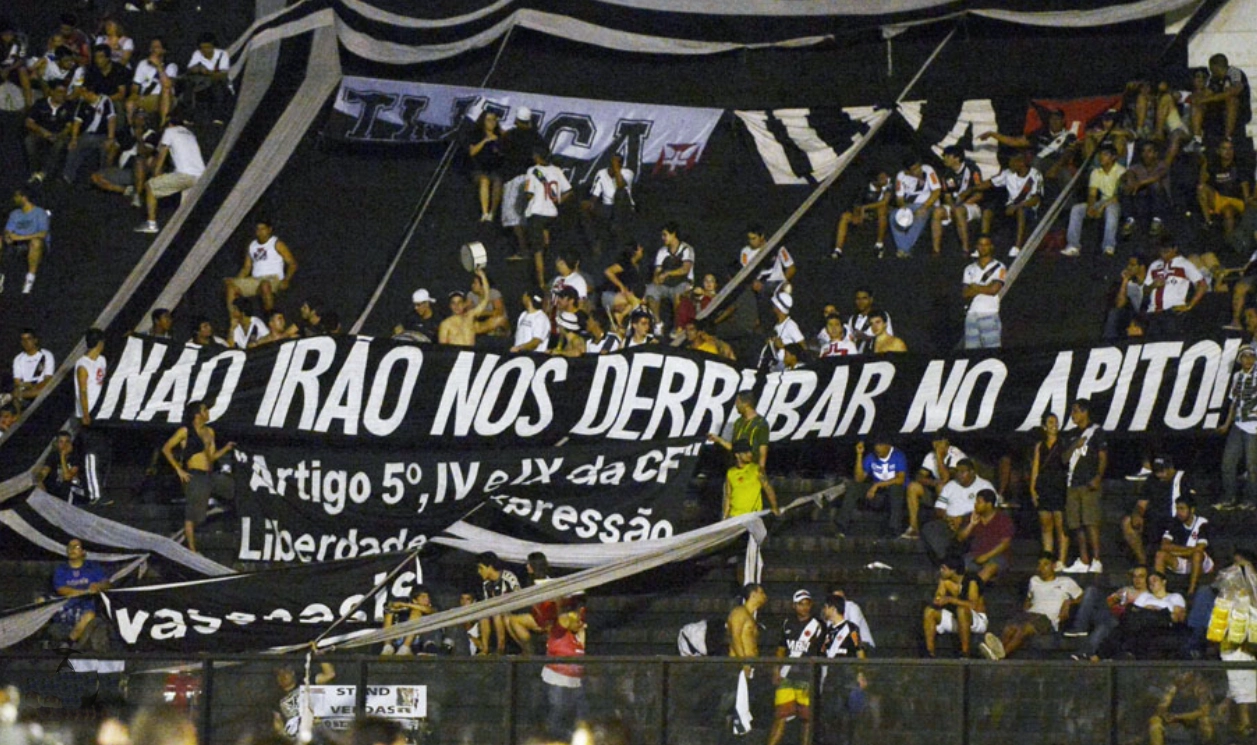On June 23, the Vasco da Gama Soccer Club, popularly known as Vasco, was sanctioned for incidents that occurred after a Brazilian soccer championship match. As a result, the judge on duty, Marcelo Rubioli, banned access to its stadium, São Januário, a decision that for many is based on social prejudice.
The record states that “the stadium is surrounded by the community of Barreira do Vasco, from where the sound of gunshots from the drug trafficking that goes on there is regularly heard”; and that the narrow streets “are always crowded with drunken fans.” This recalls the club’s historic confrontation with the elite of Rio de Janeiro society, which dates back to 1923. That year, the club won its first championship with black and poor athletes, belonging to the proletariat and the city’s huge Portuguese colony. It has been 100 years since the historic confrontation of a popular club against racial and class prejudice. The means have changed but the motives seem to be the same.
Vasco’s history was born predestined to struggle. Its origins are intertwined with the very resistance of cultural elements rooted in the most vulnerable social classes of the carioca society. In this sense, its existence transcends the limits of the Portuguese colony and includes historically marginalized groups, such as blacks, workers, and poor immigrants.
In a letter addressed to the Metropolitan Athletic Sports Association (AMEA), known as the Historical Response, written in 1924, Vasco confronted the Association’s founding clubs, which did not accept that it had black, illiterate, immigrant, and socially disadvantaged players on its roster, in addition to alleging the lack of its own stadium.
According to the letter, the players in those days were taken to court and tried without proper legal representation, based on an “investigation into the social positions of the members”. In a context in which the practice of soccer was reserved for the wealthier social classes, a monument rooted in the city’s most popular traditions was erected, the São Januário stadium. Recognized as a monument of resistance built by popular force, it welcomes its fans, in a pre-match unique in the world, with a samba circle from the Barreira do Vasco community, the “Sambarreira”.
One hundred years later, Vasco is once again facing discrimination from representatives of the Brazilian society elite, apparently based in the Brazilian Football Confederation (CBF), the Superior Court of Sports Justice (STJD), the Court of Justice of Rio de Janeiro (TJRJ) and the Public Prosecutor’s Office of Rio (MP-RJ), as well as from its opponents, who repeatedly prevent it from playing at the Maracanã Stadium.
Without generalizing, because all these institutions have reliable professionals who do their duty, it is worth mentioning the dreadful institutional actions that have made the social existence of a unique club unviable, through a deliberate movement to destroy it.
The club, already serving time for the riots that occurred more than 70 days ago, is still unable to play in its own stadium (São Januário Stadium). This case coincides with the club’s struggle to exercise its right to play in a national public asset, the Maracanã, against the stance of the Rio de Janeiro State government and its opponents, who manage it on a temporary basis without a bidding process.
But now the fight has taken on new contours. In addition to sporting losses, Vasco is facing judicial decisions totally disconnected from reality, imposing immense losses not only on the club but also on the vulnerable communities around it, which depend on Vasco’s matches for their livelihood.
This apparent persecution becomes a broader social issue, affecting the economic life of the poorest strata and imposing deeper instruments of segregation against a specific target, the working classes. Parallel to this legal scheme against Vasco, an attempt is being made to reach an agreement with the MP-RJ by signing a Conduct Adjustment Agreement (CAA). However, the main demand is that the club install a biometric payment system through facial recognition.
It is noteworthy that this requirement only affects the Vasco da Gama stadium, and does not affect other venues where matches are usually played in the city. The argument that the area is dangerous and poses a greater risk than other venues, as pointed out by the judge on duty, does not hold water. Incidentally, these venues have the same incidence of shootings and violence among fans as São Januário.
If that were the case, all stadiums would have to go through the same criteria, subjecting the people who frequent these venues to the same procedure. As the proposal stands, this initiative is not part of a broad strategy for the proper functioning of security in sports venues but is aimed at monitoring and punishing a certain social group. Experts who analyze the good conduct and practices of the institutions state that the implementation of this system may entail serious risks.
What is happening with Vasco is an imposition. So, their fans, or people who go to the stadium, located in a socially vulnerable region, without choice, have their biometric data collected, based on a discriminatory opinion and without a plausible technical basis. There is a desire for guardianship over the decisions of a club in the management of its interests.
The prejudice faced by Vasco seems to persist, intertwined with the segregation of large sectors of Brazilian society. To the concrete barriers are now added digital ones, which make it possible to collect data on the “dangerous classes”, a term coined in the 19th century to refer to workers excluded from the production process, but which also refers to the “undesirables”: blacks and immigrants, especially from poor regions. Traditional racism is superimposed on algorithmic racism.
Against these barriers to access, the Barreira do Vasco community resists. And, as the club’s fans say: “Vasco has to play against everything and everyone”.
*Translated from Spanish by Janaína Ruviaro da Silva













